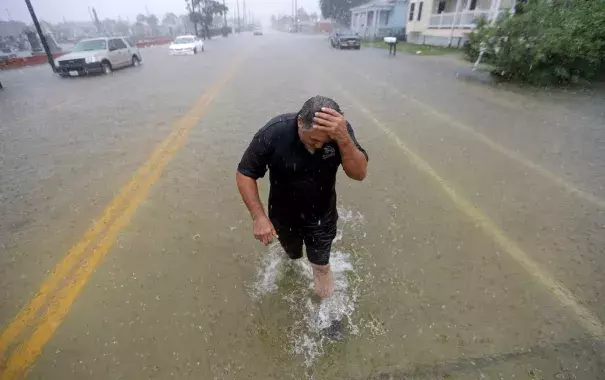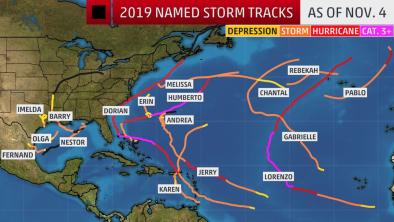Climate change more than doubled the odds of Houston’s most recent deluge, study finds

Lumbering Tropical Storm Imelda dumped up to 43.39 inches of rain in Southeast Texas, between Houston and Port Arthur, on Sept. 18 and 19. At least $1 billion in damage was probably incurred, along with at least five deaths from the epic deluge, which scientists estimate had a return period of once in 1,200 years.
But the flooding wasn’t a freak occurrence in this region, having followed other heavy rains in 2016, 2017 and 2018. The biggest and most damaging event was 2017′s Hurricane Harvey, which set a national rainfall record for the heaviest rain in a tropical system, at 60.58 inches.
A new study examines Tropical Storm Imelda which, like Harvey, lingered in one general area for days on end, and any ties between the heavy rainfall totals and long-term, human-caused climate change.
A scientific consortium known as World Weather Attribution, which conducts rapid analyses of whether and how climate change played a role in extreme weather events, analyzed Imelda in a similar way to a previous analysis of Hurricane Harvey.
The Harvey study found that global warming increased the intensity of rainfall from that devastating storm by about 15 percent, while the probability of its occurrence went up by a factor of three, because of increased concentrations of greenhouse gases in the atmosphere and corresponding changes to ocean temperatures and the amount of water vapor available for storms to tap into as energy.
The new study, which uses similar methods and has not yet been peer-reviewed, comes to similar conclusions, finding that although this event involved a weaker storm with slightly lower rainfall totals, it, too, was supercharged by a warming climate.
Related Content





